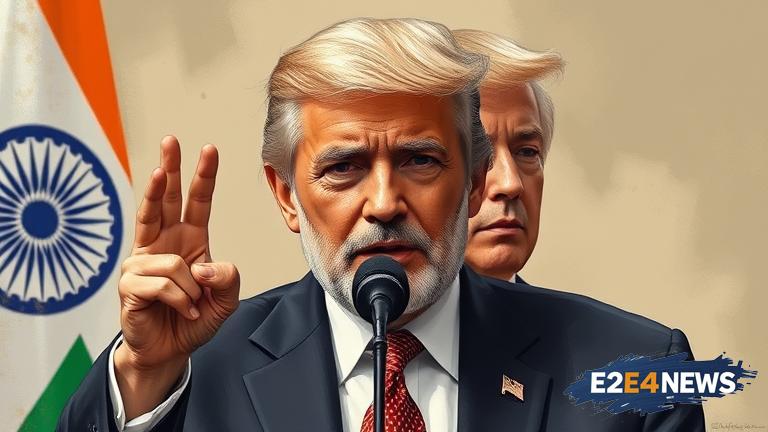In a recent statement, Indian External Affairs Minister S Jaishankar underscored the importance of a multipolar world, where no single nation or group of nations can dictate terms to others. This assertion comes as a response to US President Donald Trump’s efforts to impose his country’s will on the global stage. Jaishankar’s remarks highlight India’s commitment to upholding the principles of sovereignty, equality, and mutual respect among nations. The minister’s statement is significant, as it reflects India’s growing assertiveness in international affairs and its determination to protect its national interests. Trump’s ‘America First’ policy has been a subject of controversy, with many critics arguing that it undermines the existing global order and promotes a unilateral approach to international relations. Jaishankar’s comments suggest that India will not be swayed by such attempts to dominate global affairs and will instead continue to engage with other nations on the basis of mutual respect and cooperation. The Indian minister’s emphasis on a multipolar world is also reflective of the country’s growing ties with other emerging economies, such as China, Russia, and Brazil. These nations are increasingly seeking to challenge the existing global order and promote a more equitable distribution of power and influence. Jaishankar’s statement has been welcomed by many in India, who see it as a reflection of the country’s growing confidence and assertiveness on the global stage. However, it remains to be seen how the US will respond to India’s stance, given the importance of the bilateral relationship between the two nations. The US has been seeking to strengthen its ties with India, which it views as a key partner in its efforts to counterbalance China’s growing influence in the region. Despite these efforts, however, there are likely to be tensions between the two nations, particularly if the US continues to pursue a unilateral approach to global affairs. Jaishankar’s comments have also been seen as a reflection of India’s growing engagement with other regions, such as Africa and Latin America. The country has been seeking to expand its diplomatic and economic ties with these regions, as part of its efforts to promote a more multipolar world. In addition, Jaishankar’s statement has highlighted the importance of international institutions, such as the United Nations, in promoting global cooperation and stability. The minister has emphasized the need for these institutions to be reformed and strengthened, in order to better reflect the changing global landscape. Overall, Jaishankar’s comments reflect India’s commitment to promoting a more just and equitable global order, where all nations are treated with respect and dignity. The country’s growing assertiveness on the global stage is likely to be welcomed by many, who see it as a positive development in the pursuit of a more multipolar world. As the global landscape continues to evolve, it remains to be seen how India’s stance will be received by other nations, particularly the US. One thing is certain, however: India will continue to play an increasingly important role in shaping the global order, and its commitment to promoting a more just and equitable world will be closely watched by nations around the globe. The implications of Jaishankar’s statement are far-reaching, and will likely be felt for years to come. As the world navigates the challenges of the 21st century, India’s stance on the importance of a multipolar world will be seen as a key factor in promoting global cooperation and stability. In conclusion, Jaishankar’s comments reflect India’s growing confidence and assertiveness on the global stage, and its commitment to promoting a more just and equitable world. The country’s stance on the importance of a multipolar world is likely to be welcomed by many, and will be closely watched by nations around the globe.





